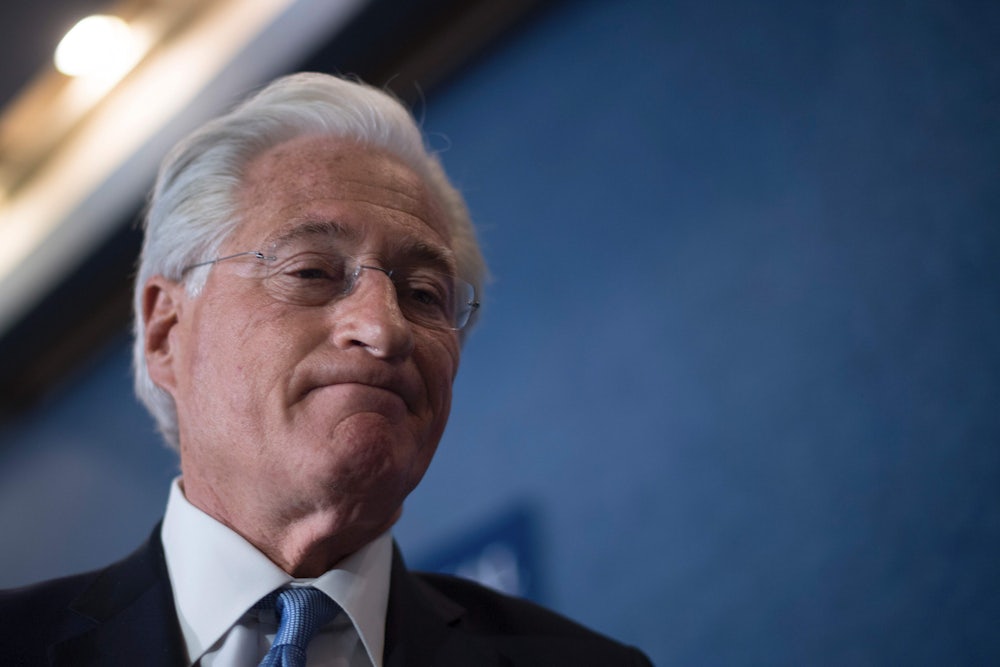It took President Trump’s lawyer Marc Kasowitz over an hour to release a statement in response to former FBI Director James Comey’s testimony before the Senate Intelligence Committee, in which Comey laid out a strong and persuasive case that Trump obstructed justice. When that statement was released, it was riddled with typos—it refers to “Predisent” Trump, for instance—suggesting a rushed response or that Kasowitz, who has been Trump’s personal lawyer for decades, is out of his depth.
But if Trump’s lawyers were writing quickly, the statement itself is full of now-familiar accusations, deflections, and lies. Yes, there are a number of remarkable assertions in the document, including that Comey perjured himself by lying about Trump demanding his loyalty and that executive privilege covers both Comey’s written memos about his interactions with Trump and his decision to testify before Congress about those interactions. (It doesn’t, by the way, and if the Trump administration really wanted to go down the executive privilege path they could have done so by invoking it before the hearing, which they didn’t.)
More than anything, though, it’s yet another example of Trump and his allies doing what they always do: Attempting to create a counter-narrative which they then feed to their allies in the right-wing media—any attempts by mainstream outlets to undermine that narrative is then presented as proof of a biased fourth estate out to undermine a president. In this case, they’re trying to turn Comey’s testimony into a he said-he said, which is what they were always going to do. Essentially, Trump and his team are disputing Comey’s account on substance, saying that he is lying about his most damaging claims, most notably that Trump attempted to influence the Russia investigation, particularly as it pertains to Michael Flynn.
As usual, however, they’re so craven and cynical that they’re simultaneously cherry-picking moments that they think make Trump look good, particularly Comey’s insistence that Trump was not being personally investigated by the FBI. This, however, doesn’t really matter—just because Trump wasn’t being investigated, as Comey argued, doesn’t mean that he wouldn’t be. Similarly, while they deny that Trump asked Comey for his loyalty, the statement notes Trump “is entitled to expect loyalty from those serving in an administration,” which is a very weird and bizarre addition, especially if Trump did not specifically ask for Comey’s loyalty.
Finally, it’s all brought around to Trump’s primary argument about the Russia investigation: That the real story isn’t that members of his campaign had multiple meetings with Russian officials, but that information about those meetings and the investigation into them has been leaked to the press. On this point, Kasowitz was particularly adamant: “Comey admitted that he unilaterally and surreptitiously made unauthorized disclosures to the press of privileged communications with the President... Comey admitted that he leaked to friends his purported memos of these privileged conversations, one of which he testified was classified.” But this story has never been about leaks, however much Trump and his team would like it to be—for the last month it’s specifically been about whether or not President Trump committed a crime.
